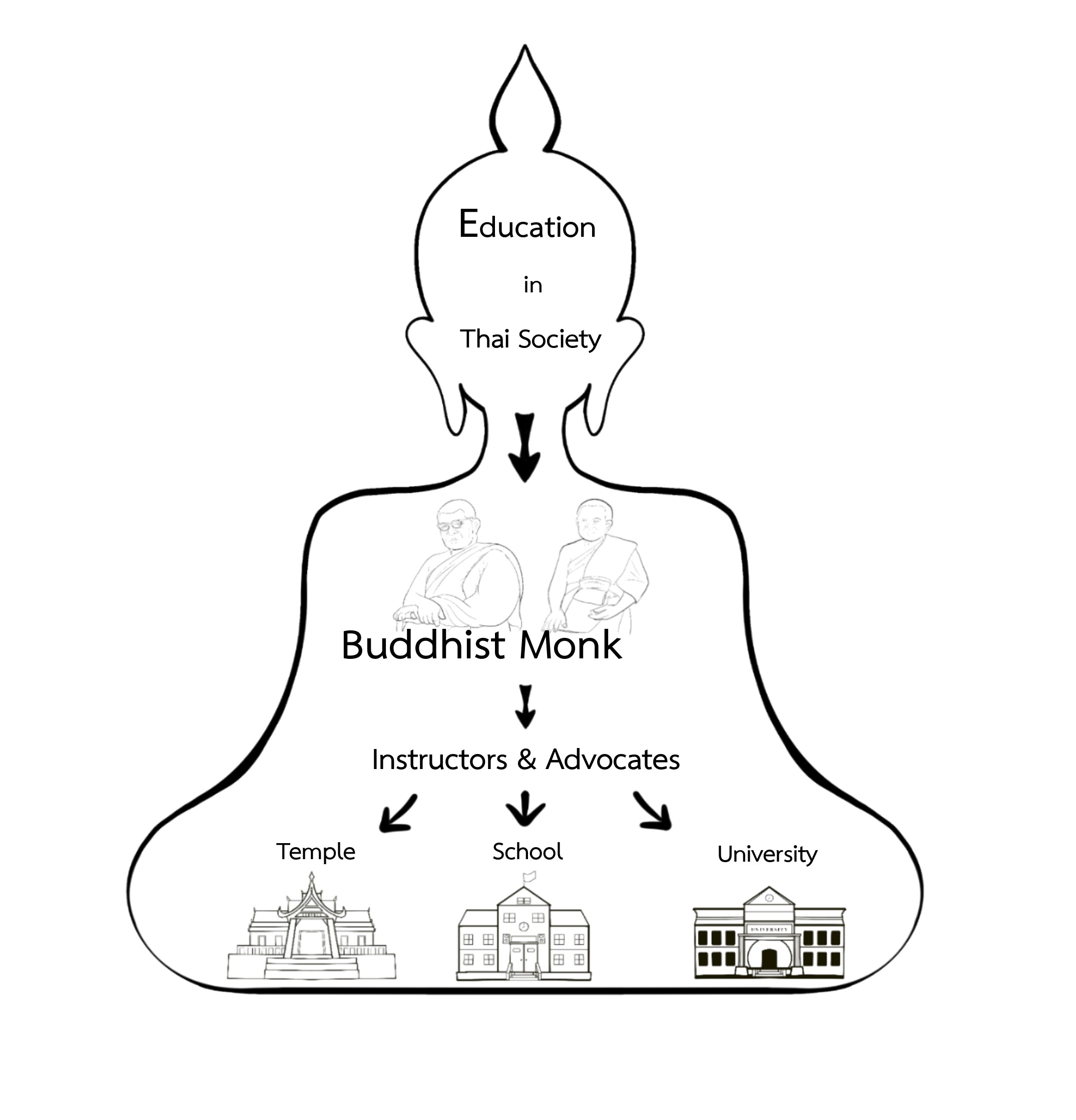ROLE OF THAI BUDDHIST MONKS AND EDUCATION IN THAI SOCIETY
Keywords:
Buddhist Monks, Education, Thai SocietyAbstract
Background and Objective: Historically speaking, Buddhism has made a deep impact upon Thai society in many respects. Thais, both men and women, accepted Buddhism as a way of life, which was interwoven in their lives from birth to death. Buddhist temples have been, and even at present, continuing to be centers of the Thai villagers’ life and a place where many activities are carried out all the year round. The Buddhist monks residing in the village temples have been the spiritual leaders of the people in respect of the way of life, norms, and education. Also, Buddhist monks have elicited worship and respect from the laymen in general. This research has the objective to study and understand the educational role of Thai Buddhist monks.
Methodology: This documentary research was conducted by investigating and collecting data from the Pāli Canon and commentaries, books, documents, articles, and research reports included academic achievements from Buddhist scholars that related to the research topic. All the data were then analyzed to present the results of the research.
Main Results: The study indicated that Buddhism became a subject of study in Thailand for a long time. Thai education in the past began with temples as educational areas. The Buddhist monks were the instructors for the offspring of the villagers, and villagers enrolled their offspring to be disciples of the Buddhist monks in the temples to receive education. The Buddhist monks conducted education on the doctrines from the Pāli Canon, the Pali language, the Thai Language, and elemental subjects. Later, education management evolved from performing within the temples. In some areas, the Buddhist monks in the local donated some land from the temples to build a school that conducted education for students within the national curriculum. In addition, some temples had built schools for the education of Buddhist monks. These schools administered education on Dhamma, the Pali language, and secular subjects related to the national curriculum of ordinary students. Later, Thai Buddhist monks became knowledgeable and played the role of instructors for local schools. In addition, the Buddhist monks also sponsored scholarships for both secular and priests. Until now, Buddhist monks persisted in dedicating and involving in Thai education. The study of the Pāli Canon had become a supported subject. The center of education comprised temples, schools, and universities. There were also prominent Thai Buddhist monks, reformers, and thinkers in Buddhist education preserved in modern times. These eminent Buddhist monks comprised Vajirañāṇavarorasa (1860 - 1921), Buddhadāsa Bhikkhu (1906 - 1993), and Prayudh Payutto (In the present, Somdet Phra Buddhaghosacariya (1939 - present)).
Involvement to Buddhadhamma: This research is based on applied Buddhism in the nature of social Buddhism that discusses the role of Buddhist monks in Thai society in terms of the educational role that Buddhist monks play as leaders, instructors and supporters of education for Thai society.
Conclusions: The research results indicated that Buddhist monks played a role in Thai society for a long time since temples had become the centers for learning the way of life and academics. Despite the constant change of the present day, Buddhist monks still played a crucial role in education. The eminent Buddhist monks kept making achievements to support and spread education on Buddhism among Thai society and international communities.
References
Batson, B. A. (1991). Review of Thailand: Buddhist Kingdom as Modern Nation-State, by C. F. Keyes. Journal of Southeast Asian Studies, 22(2), 454-456.
Faculty of Mahachulalongkornrajavidyalaya University. (2007). History of Buddhism. MCU Press.
Kosajyawat, S. (2005). The Educational Development in Palace Before The Reform Period in The Reign of King Rama V: The Origin of Formal and Universal Education in Thailand. Journal of Education Burapha University, 17(2), 1-16.
Luang Vichit Vathakam. (1975). Status of the Wats (Temple) in the olden days. Thai Watthana Panich.
Ministry of Education. (1976). A History of Thai Education. Kansasana press.
Nivat, D. (1965). A history of Buddhism in Siam. The Siam Society.
Phra Debvedi (P. A. Payutto). (1995). The Role of the Sangha in Thai Society. Withayanukun.
Phra Srisittivites & Phramaha Mit Thitapanyo. (2020). The evolution of temples in buddhism. Journal of Graduate MCU KhonKaen Campus, 7(3),74-85.
Phraya Anuman Rajadhon. (1957). Chiwit Choa Thai Samai Kon (Lives of the Thai people in the old days). Karnsasana Press.
The National Library. (1980). Parienratchakon Thisi (Education in Rama IV). Sophanaphiphatthanakon.

Downloads
Published
How to Cite
Issue
Section
License
Copyright (c) 2023 Journal of Buddhist Anthropology

This work is licensed under a Creative Commons Attribution-NonCommercial-NoDerivatives 4.0 International License.








